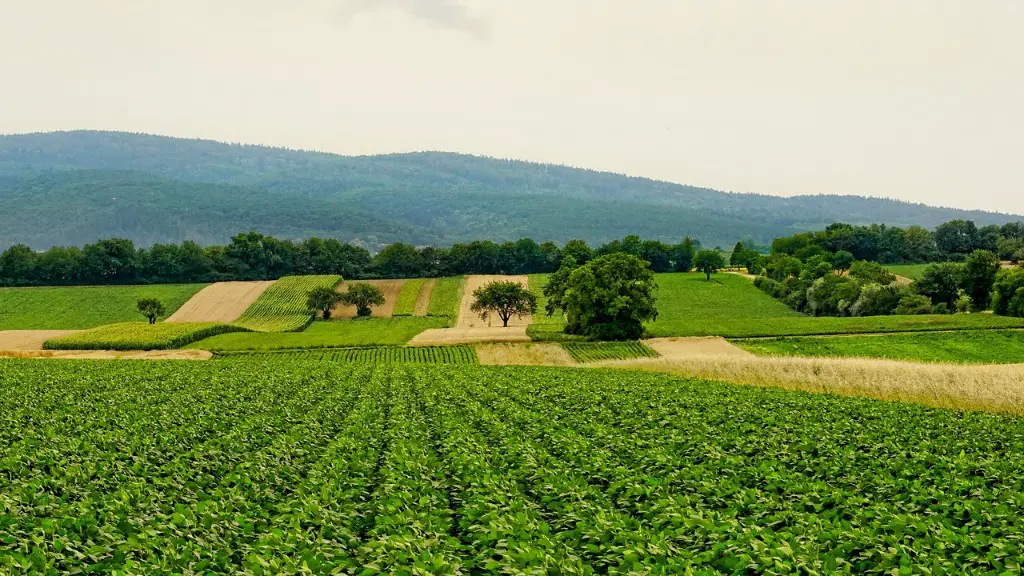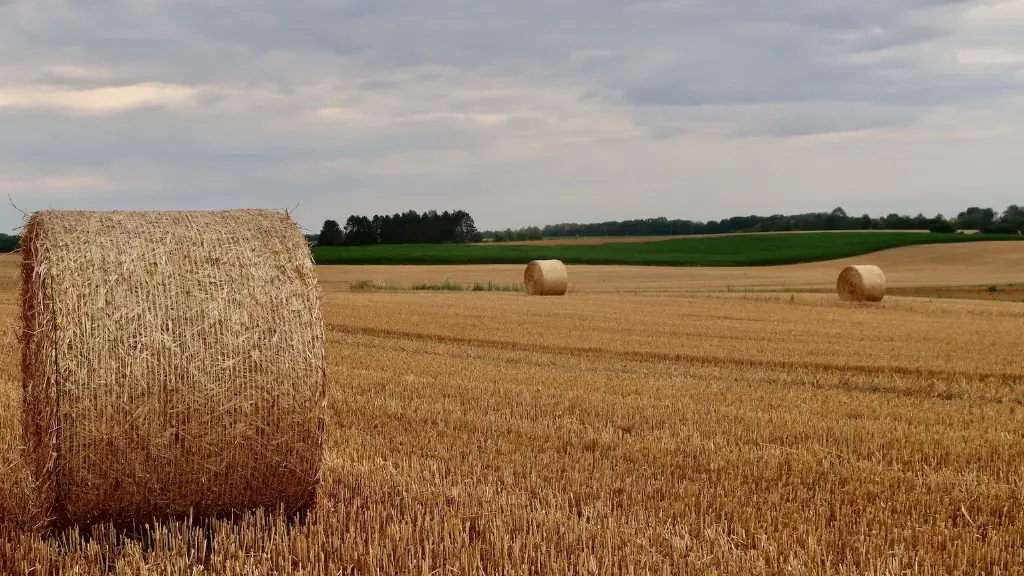Agriculture is an integral part of the global economy and sustains numerous livelihoods. Yet, modern farming faces many challenges, ranging from climate change to dwindling resources and increasing competition. This article looks at some of the issues facing agriculture today and explores how farmers can adapt to ensure their longevity and success.
One challenge facing agriculture today is the increased prevalence of extreme weather events as a result of climate change. Many of these phenomena, such as droughts, floods and storms, damage growing crops, erode soil and reduce land productivity. In addition, farms and rural communities must adopt new ways of working that are necessary for the mitigation of climate-related risks. This includes the use of better irrigation techniques and the adoption of sustainable agricultural practices, such as agroforestry and the incorporation of trees into farming.
Furthermore, the dwindling of natural resources is also a concern. Water is becoming increasingly scarce, especially in arid regions, while soil fertility is on the decline due to over-farming, soil compaction and erosion. These issues have made it harder for farmers to produce healthy yields, contributing to food insecurity in many parts of the world. To address the issues of resource depletion, farmers have to adopt efficient farming practices and use resources more sustainably.
Overexploitation of resources has also resulted in competition between resources users. As land and water supplies become increasingly scarce, agricultural producers are competing with other users, such as energy companies, urban planners and fishing communities, for access to scarce resources. This has ignited conflicts between these groups, creating an uncertain future for farming communities.
Finally, the agricultural industry is struggling to keep up with rapid economic and technological change. Smallholder producers are particularly vulnerable to market forces and global trends, such as the rise of industrial farming and demand for organic products. Consequently, farmers have to constantly innovate and modernize their production in order to stay competitive.
What can be done: overcoming challenges in agriculture
In order to overcome these challenges, there needs to be greater cooperation between the agriculture industry and other industries, such as the energy sector, for the efficient use of resources. In addition, integrated approaches to resource management need to be implemented, involving all relevant stakeholders to ensure an equitable sharing of resources. Furthermore, farmers must be supported in adopting more advanced technologies and practices, such as precision farming, in order to increase productivity and reduce inputs.
Moreover, farmers must be provided with a regulatory framework that is conducive to innovation, such as farmer-focused research, access to capital and incentives to adopt new solutions. Additionally, educational and training opportunities must be encouraged to boost the agricultural sector’s skills base. This should be followed by the implementation of policies that foster sustainable agricultural production and equitable resource use at the local and national levels.
It is also important to create stable market structures that enable farmers to receive fair returns on their produce. This could include instituting supply chain controls, strengthening contractual arrangements and improving pricing mechanisms. This could help ensure food security and incentivize farmers to produce healthy and quality produce.
Developing long-term strategies
To ensure the long-term success of the agricultural industry, it is essential to develop strategies that build resilient and sustainable farm systems. This involves investing in the protection and restoration of farmland to ensure that the land produces healthy crops and generates profits for the people who work it. It also means investing in knowledge and skills, so that farmers are able to adopt new technologies and practices, and invest in a secure future.
In addition, more focus needs to be given to appropriate habitat management, conservation and stewardship of natural resources. This includes promoting pollinator diverse habitats, preserving wetlands, encouraging efficient water use and investing in green infrastructure, such as windbreaks and cover crops.
Finally, it is essential to recognize the contributions of farmers and rural communities in tackling the challenges of agriculture. This means providing them with secure access to resources, enabling them to benefit from market opportunities and protecting them from unfair economic pressures. This can be achieved through the creation of subsidies, tax fixes, agricultural insurance and government-led initiatives for rural development.
Encouraging market access
In order for farmers to succeed, they need to be able to access markets that are both profitable and fair. This often involves opening up access to markets such as exporters, food processors and retailers, and providing financial support to compete in these markets. Farmers must also have access to accurate market information, including up-to-date pricing data, to help them make informed decisions on where to sell their produce.
As well as market access, farmers require access to capital to help purchase inputs and technology, and investments in infrastructure, such as roads and storage facilities, to enable them to transport their crops to market. This is especially important in developing countries, where access to capital and poverty levels are often high.
Furthermore, farmers need to be able to access technical advice and advances in technology to help them meet production and safety standards, such as organic certification and food safety regulations. This often requires dedicated government support and the provision of extension services to help farmers keep up with changing trends in the industry.
Investing in rural communities
In order for the agricultural industry to survive and thrive, investment needs to be directed towards rural communities and their livelihoods. This includes investing in rural infrastructure, such as communications networks and transport links, to enable farmers to connect with markets and to access knowledge and best practice. In addition, there should be investment in education and training opportunities, as well as support for agricultural cooperatives and other local organizations.
Furthermore, there needs to be investment in agricultural research, in order to develop new innovations that can boost farm productivity and resilience to climate change. This could include developing drought-resistant crops, introducing new farming technologies and improving farm management practices.
Finally, it is important to invest in activities, such as farm diversification, that can help reduce economic reliance on agriculture. This includes encouraging value-adding activities, such as agritourism and food processing, as well as creating markets for non-food agricultural products, such as bioenergy.
Promoting sustainable practices
More needs to be done to promote sustainable farming practices that help to preserve the planet’s resources and reduce emissions. This includes adopting no-till and low-till farming, using cover crops to reduce soil erosion, reducing synthetic fertilizers and pesticides, and managing land and water resources more efficiently.
In addition, agroforestry is emerging as a promising practice, as it can improve soil fertility, enhance biodiversity and reduce risks from climate change. Furthermore, it can provide farmers with multiple benefits, such as timber, fuelwood, fruit, medicines, fodder and honey.
Other practices, such as integrated pest management, provide farmers with sustainable solutions to pest problems by reducing the use of chemical pesticides and encouraging natural mechanisms, such as biological control. Furthermore, the promotion of sustainable agriculture can benefit farmers in terms of economic stability and resilience to climate change.
Finally, it is essential to incentivize sustainable farm and food practices, such as using organic fertilizers and soil amendments, high-efficiency irrigation and reduced food waste. This could involve the implementation of green subsidies or taxes on unsustainable agricultural practices.





